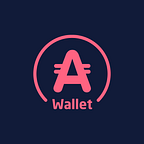ANU#52 — Migrator Improvements and a Letter from our CEO
Welcome to the AppCoins News Update, ‘ANU’ for short. This week, we’ve focused on the Migrator’s latest improvements, Fiat withdrawal updates and a 2019 recap from Paulo Trezentos, CEO of AppCoins.
Since the last ANU, the AppCoins team has been working on the following improvements:
Migrator App Bundles Improvements
To make developers’ life as easy as possible, we’ve been working on the migrator, a technology that allows developers to easily migrate their apps from Google Play billing to the AppCoins billing. Developers don’t even have to change a line of code. All they have to do is to agree to be apart of the AppCoins ecosystem. This technology is revealing itself as a key tool for us to get more developers and to make the ecosystem grow.
Lately, we were getting many apps stuck because they were Unity apps and used App Bundles technology, which the migrator didn’t support yet. In the last few weeks, we’ve been working on supporting them.
Fiat Withdrawal Support
As you know, one of the most important parts of the AppCoins ecosystem are the developers; they bring variety so users can choose from many different apps to play with. Convincing them sometimes is tough because, although blockchain and cryptocurrencies are very transparent and secure, some developers don’t want to learn different ways to have In-App Purchases (IAP) in their apps. In the past, once the developer wanted to withdrawal their funds, they would get APPC in their wallet, and then would have to send them to an exchange and convert them to Fiat. From now on, they can directly withdrawal their funds in Fiat currency instead of having to make the conversion on their own.
Wallet Bug Fixes
In the past few months, we have been working on a lot of features; as such, it was time to look back and improve some issues in the wallet to make it more stable and comprehensive.
Following last month’s protocol KPIs performance, on this ANU we have collected the values from December, regarding both flows using AppCoins, IAP and User Acquisition, the number of apps downloaded with the integration of AppCoins, as well as indicators from the SDK, as the table shows below.
As always, you’re invited to follow our work regarding all of the products we’re working on:
Published artifacts:
- ASF Wallet (Aptoide & Google Play)
- AppCoins Wallet (Aptoide & Google Play)
- ASF SDK
- ASF Unity Plugin
- BDS SDK
- BDS Unity Plugin
- BDS Billing System integration guide
At the time of writing, the current market cap is close to $2,597M USD, with $905,316 USD in volume in the last 24 hours across these exchanges: Binance (96.22%), Huobi (3.58%) and HitBTC (0,20%).
Since the last ANU, APPC value has witnessed a high of $0.028 USD on December 30th, and a low of $0.023 USD on December 17th. You can see more info about APPC markets at Coinmarketcap.
Name: Márcio Fazenda
Role: HR & Business Partner
Bio: As Human Resources Manager, Márcio is focused on recruiting the best talent to join the team. He is also in charge of organizing team building activities that strengthen our brand.
“The end of the year is always a good time to look back and have a critical assessment of the strategic and operational side of a project.
The AppCoins cryptocurrency is in the core of the AppCoins Protocol as a payment method, but also to create trust among app and game developers, as well as app stores and mobile devices manufacturers.
The adoption of AppCoins depends on developers integrating our in-app payment solution to their apps and taking advantage of our rewards programs. From 138 games with AppCoins SDK, which integrated back in January 2019, we’ve jumped to 2,900 unique apps on December 19th. This means that the project has seen an average growth of 36% per month in the last 12 months.
More apps means that more payments were processed — something the AppCoins protocol has also excelled in! The monthly in-app purchases have grown from 37,000 APPC in January 2019 to 3.27 million APPC so far in December 2019. That’s 1,000 times more in 12 months — a reason for us to be very proud and stay dedicated believers of the AppCoins Protocol.
The scale-up of the number of transactions also unleashed some challenges. Roll out to mobile manufacturers (i.e., OEMs) takes more time than expected because the protocol had to be adapted to have an accurate attribution. The Team is still in the first steps of the roll-out to partner app stores and replicate the success that happened in the Aptoide app store. That means that the partner’s app stores roll out to come will be a major growth engine in 2020.
Also, on the challenges side, in 2019, AppCoins has suffered from the volatility of the crypto market with ups and downs, not so associated with the adoption or traction, but more with normal dynamics of the crypto market. This led us to analyze risk mitigation mechanisms to make the life of developers and app stores easier amid the volatility.
For 2020, we are strongly committed to keep growing and scaling AppCoins in the mobile industry. A protocol only has a reason to exist if it has an impact.
To everyone in the AppCoins community, I’d like to personally thank you for your support during 2019. I wish a great 2020 for you and your beloved ones, filled with prosperity and joy.”
— Paulo Trezentos, CEO of AppCoins
Missed one of our previous publications? Not to worry. You can read them right here:
What’s the difference between a Wallet Address and a Private Key? + More FAQs
ANU#51 — Blockchain Safety, UI Subscriptions & New Wallet Screen
ANU#50 — Credit Card Payments and AppCoins Protocol Retrospective
